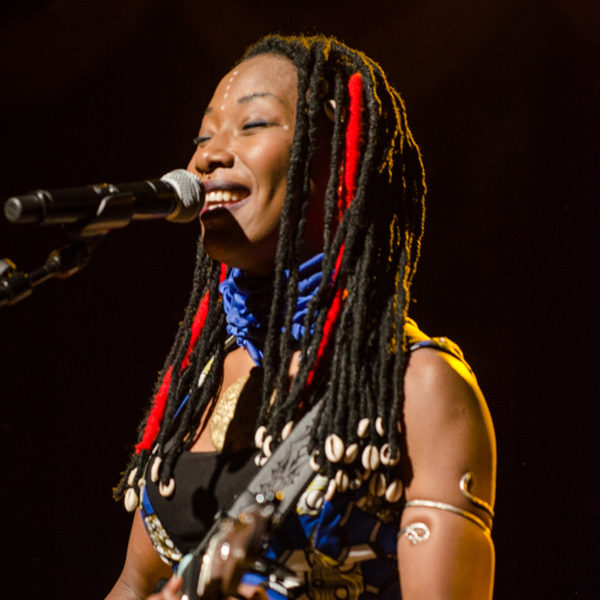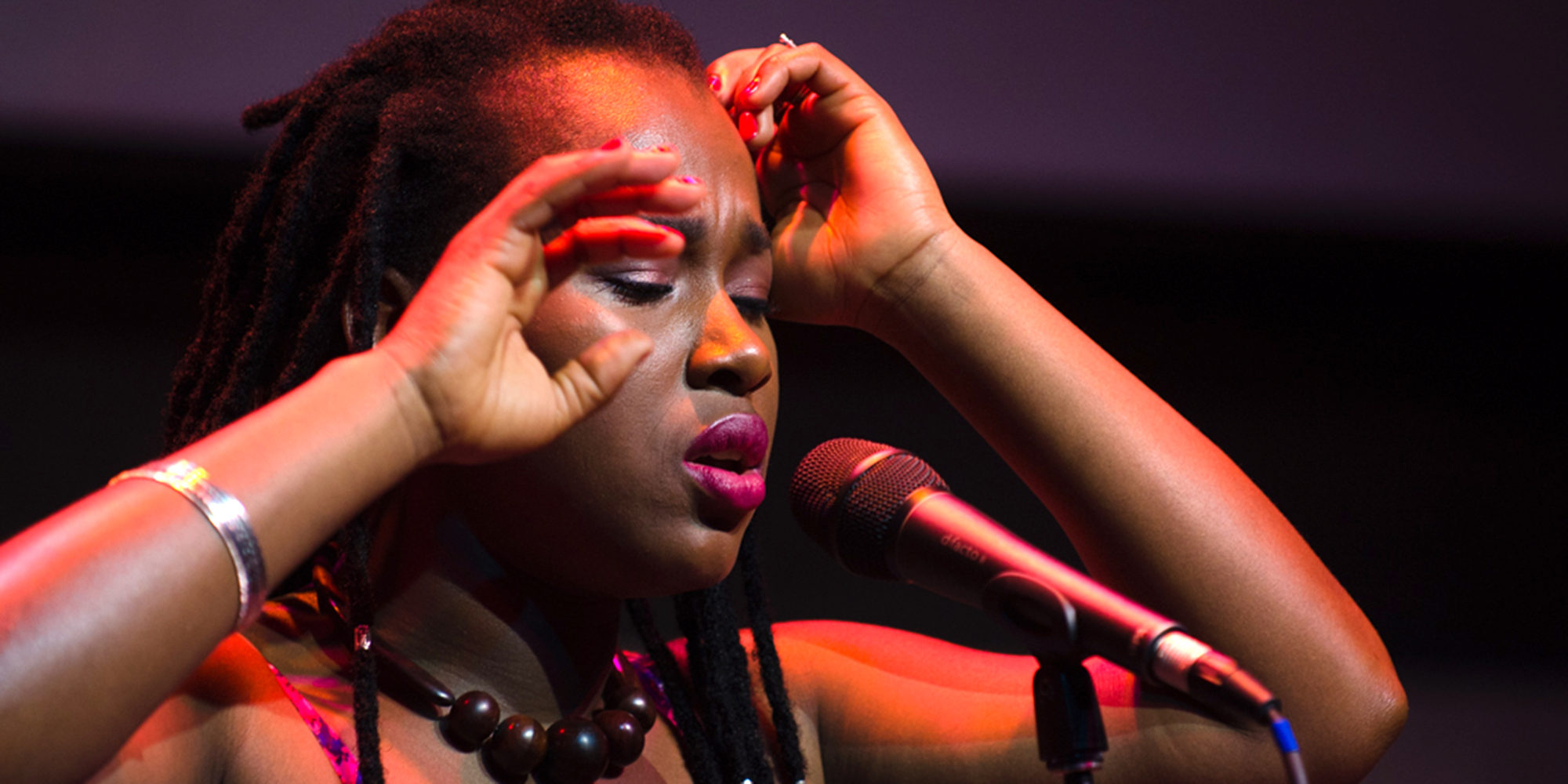Elida Almeida, just 25 years old, is fast becoming a phenomenon of Cape Verdean music, touring the world, composing for some of the top singers of her time, and releasing her third album for Lusafrica, Kebrada. Banning Eyre caught up with her on a recent swing through New York. They spoke just before her performance at the David Rubenstein Atrium at Lincoln Center on June 21, 2018. Here’s their conversation.
Banning Eyre: When our producer Alejandro spoke with you in Cape Verde last year, you talked about your beginnings listening to the radio in your home town in Salvador, in the interior of the island. It seems that’s where this all started.
Elida Almeida: Yes, yes. And I worked in the radio too, for one year. I think that’s why I have this relation with music, because in the radio you have to play the music, you have to learn to listen. I had to learn to improvise too, so I think that’s why I started to write, and that’s why I am the composer for most of my songs.
So you had not written songs before you did the radio show?
No, grew up listening to the radio in my village. We didn’t have electricity until one year ago, so yes, he only thing that we enjoyed was radio. And it was a radio that ran on a battery. I grew up with the music from my country, from the continent of Africa, from Europe. I listened a lot to the Scorpions, for example, and a lot of singers from around the world. When you don’t have anything else to do—you don’t have TV, you don’t have a computer, a phone—the only thing we could do was improvise. So we sit at the end of the day, we children, and start to play batuku. It’s very easy to play, it doesn’t need any instruments to play it. Just like that and we sang about everything that we saw.
So you were a composer when you were a child, basically.
Yeah, I think so!
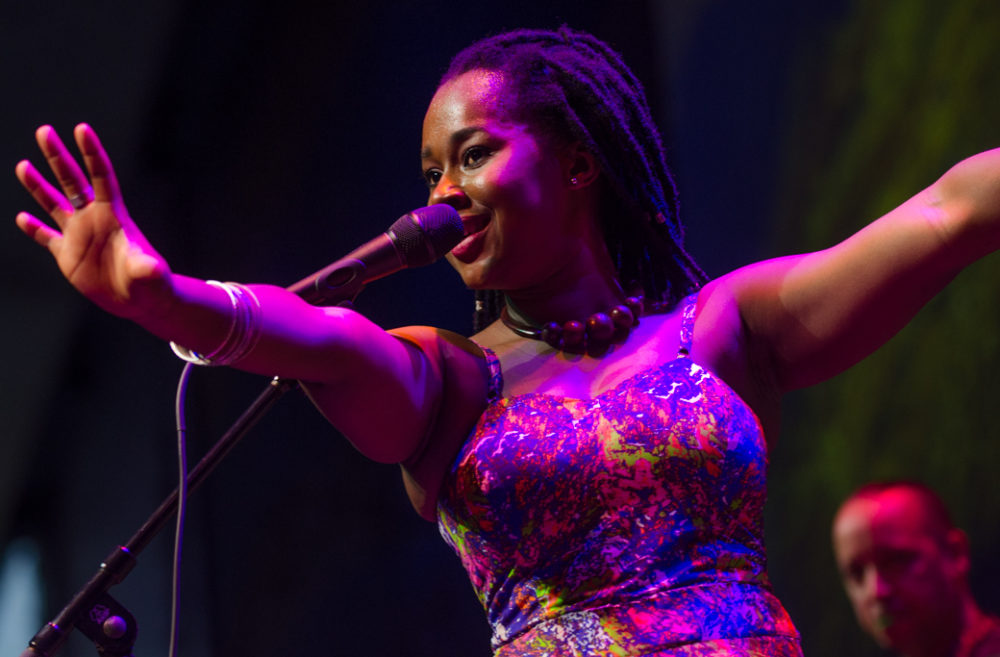
How did you first start recording?
It was in 2004. I already had a son, I had already finished college and started to do university. I was in Praia in my second year of university. I was studying communication and multimedia, and sometimes I passed my time singing in restaurants, in a bar. One day I was singing. It was not a good day for me because I needed money to pay my bill, and I saw out in the audience…. Jose da Silva [the head of Lusafrica Records in Lisbon].
Really.
It seemed impossible. Because in Cape Verde, it’s God in sky and then Jose da Silva. And when I finished, he came to talk to me to say, “You have a beautiful voice and I would like to work together” I thought, “What!?” [Laughs]. Yeah, it was so fast!
Wow, and this led to your very first record.
Yes, Ora Doci Ora Margos. It was my first. We met in April and we started recording in June. So it was really fast. And right away, I said to him, “I have my own songs, I write songs, I am a composer.” And he said, “Are you sure?” because in Cape Verde it’s not normal. Most of the composers are men, and the women just interpret. So he said, “O.K., send me the lyrics and I will check!” and I sent him four or five songs, and he said, “It was you did this?!” I said “yeah!” “No.” “Yeah!” So that’s why he was more interested in me because I am the composer of my songs. It’s unusual in Cape Verde.
I understand. It’s very unusual. And I see that you’ve written songs for Lucibela, Nancy Viera, Lura, lots of people. That’s a wonderful thing. How does it work with another artist? Do they hear one of your songs and say, “I’d like to sing that song” or do they say, “Will you write a song for me?” What happens?
It’s a good thing when an artist you’ve admired your entire life comes to you and says, “I would like to sing a song of yours.” Like Lura, who is my inspiration. It was my dream to meet her, and we met one day and she said, “I would like to make a duo with you on your song.” [Gasps] Oh my God, this happened! And it was so fast, so when the people like Lucibela, like Lura, record my song, it’s a good thing, because I say, “Now I can tell to the world what I feel, what I think about something, and I can talk for other people too.” Because I watch my society and I watch other people, and I see what they want to say, and I write that in my songs.
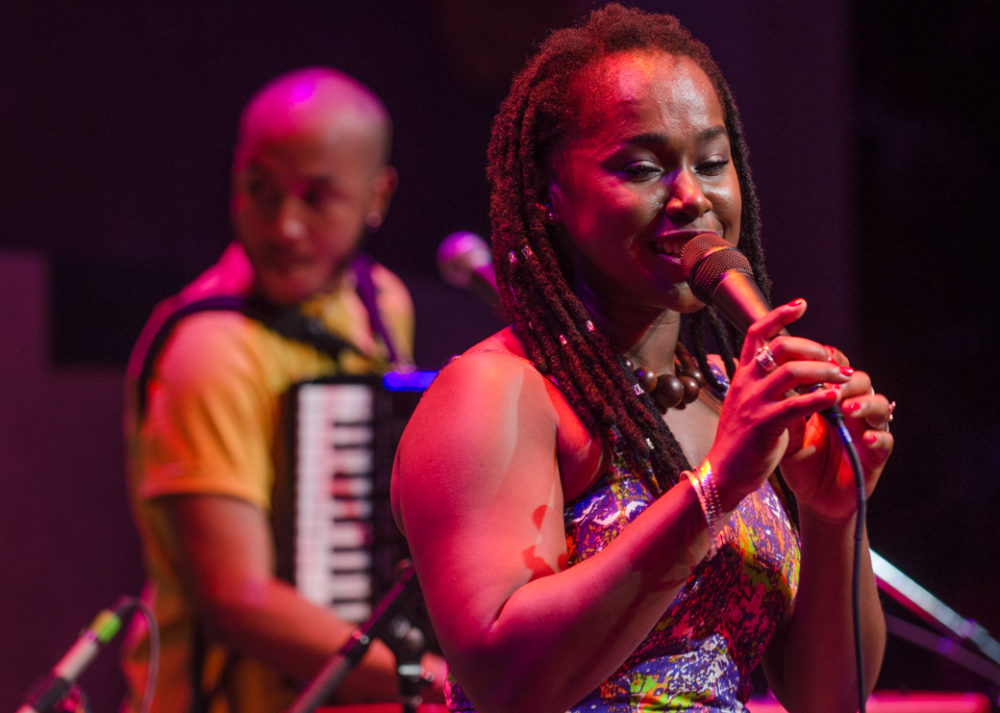
So when you write a song for Lucibela, or Lura or Nancy, do you think about them specifically? Do you think, “I’m writing a song for this person?”
No, not really. Why do people in Cape Verde like my songs so much? Why? Because I sing about their lives; it’s me who wrote, but it’s their life. It’s what I see is happening; that’s what I write. That’s why people like Lucibela, Lura, identify with a song. Because it’s our life, it’s our society, what happens everyday with everyone.
O.K., so let’s talk about a couple of songs on the new album, Kebrada. Start with the title.
Kebrada. It’s a name of a place, where my grandmother is from. I pass a lot of time there with her. She is very special. She’s still alive, and this album is like a tribute I did for her. I have a lot of songs in this album that talk about things that happened in Kebrada. Whenever I go there to visit my grandmother, I see things that inspire me. So that’s why I choose this name.
Tell me about the song “Sapatinia.”
That’s the song that gave the name to this album. In “Sapatinia,” I talk about the time I spent there, when I lived there, time that will never come back. It was really nice to grow up with good food. I don’t know if you know ketchupa, our traditional food. It’s so strong, it’s made with corn and vegetables and meat.
I have to go back for that.
Yeah [Laughs]. You have to try it. And I say in this song that it was a good time when I grew up not with the alarm from cell phone but with the sound of animals. And at the end of the day, everybody sat to wait for grandfather to tell us a story. I had these image and all these stories in my head, things I will never forget about.
That’s beautiful. And I love this song, “Berso d’Oru.”
“Berso d’Oru.” Yeah, it was a single. It’s another traditional music from Cape Verde called tabanka. It’s a really nice and it’s now disappearing a little, so I tried to change it, to go and take tabanka and put something modern in it, so we can get the new generation to listen to traditional music. That’s why we tried to do a modern arrangement in this song. And it’s working, because when we play in festivals in Cape Verde we have new generation, 16, 30 years singing with us. We can see that it’s working. So we stay with our tradition but we still open, you know? We make a fusion between traditional and modern songs.
It’s such a great rhythm on that song. I know about funana and batuku and morna and coladera, but I’ve never heard about tabanka. What’s special about it?
The song talks about the city of Santa Cruz. I am from Santa Cruz. Many artists were born there. Like Mindelo. You know, we have this guy Cachaz. He changed everything in funana. Cachaz made funana becoms so popular, because he orchestrated funana for the first time. Before him, funana was just music from poor people [Laughs] or I don’t know, people in the countryside. But after this, funana became something chic.
Yeah, now we have Ferro Gaita and all these popular funana groups.
Yeah, (laughs)
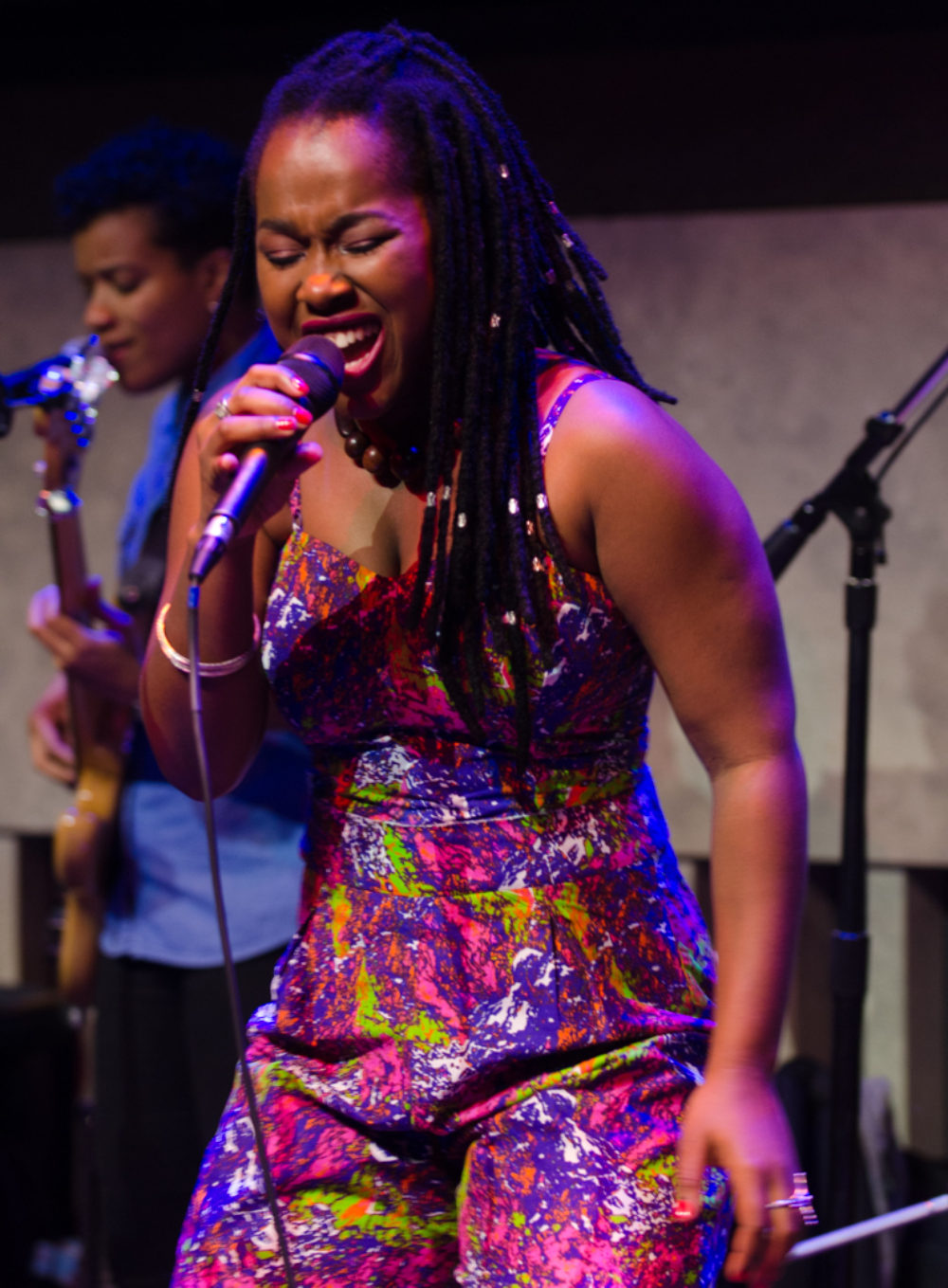
So you’re trying to do this for tabanka.
Yeah, well I’m trying to explain what this song talks about. It talks about this kind of guy, like a Cachaz, and another strong woman named Nacia Gomi. She was the one who revolutionized batuku too. So now, it’s a revolution for tabanka. So in this song I talk about a dream that I have about these people I admire so much even though I never met them. It was a dream that I could play with them, dance with them, sing with them, and Nacia Gomi, for example, she gives me advice to take care, to not let the handsome men….[Laughs] Well, it was just a dream, but it was also a tribute for these great people that did so much for our music.
It’s a truly great song. What about “N’Kreu.”?
“N’Kreu.” It’s one of two songs that are not mine. It’s from a guy we work with, Carlos Manuel Moreira dos Reis. I already recorded one song from him, “Txika” from the EP Djunta Kudjer, the second release. He’s a really nice part of our new generation. So every time I record, I ask, “You don’t have something for me?” and he says, “Yes, I have.”
Nice, what does “N’Kreu” say?
It talks about a girl that he loves and he says, “I have every intention to marry you. I talk with my father and my mother, and they will go into your parents’ home to ask them to give me your hand to marry with me, because I love you and I have all the conditions to marry you. So it’s a crazy story about love.
Is there another song you want to talk about that’s special for you?
[Laughs] They all are. They are all special. Each one has its particularity. I love this album because we took time. We had a residence in Abidjan. We stayed there for a month to prepare. So this is an album I really love to listen to, because it’s done with great care. I worked with my guitarist Hermani Almeida, who is also my musical director.
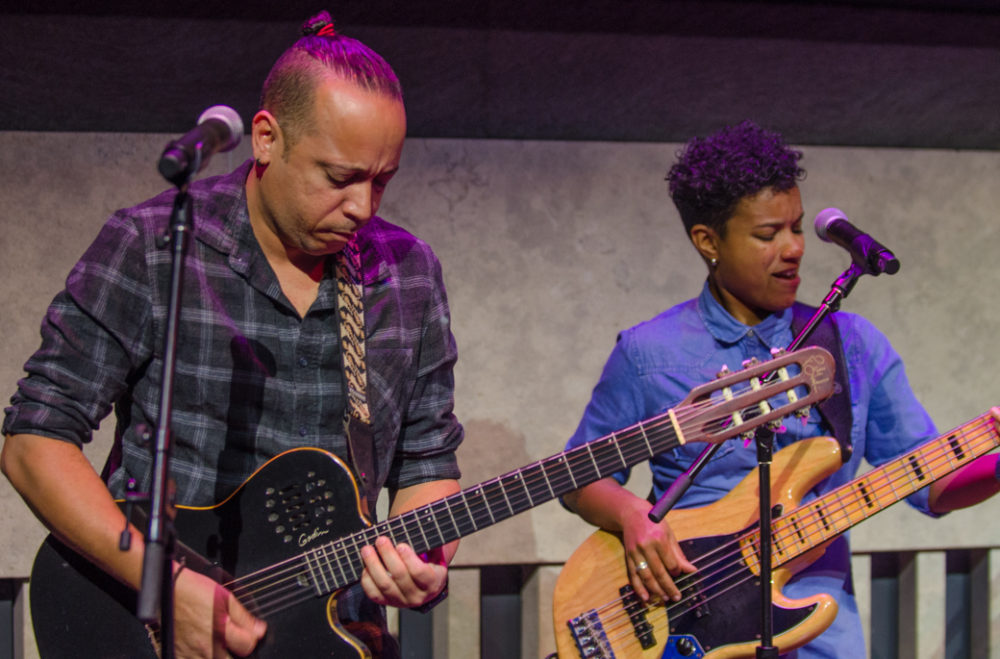
Did you record in Abidjan?
Yes, but this is an album that was made in many places, in Cuba, in Brazil, in Senegal. If somebody knew someone who could play very well, no matter where, we sent the tracks and they recorded. So it’s not an album we made quickly. We thought about everything and made all the right choices. It’s not the same as the earlier ones.
I want to ask you about your generation and young musicians in Cape Verde now. We did a recent program called "Cape Verde Sounds: Heard and Unheard." Our producer Sebastian Bouknight spoke with young singers in Praia who were interested in other kinds of music maybe it’s hip-hop or r&b, or reggae. They said they felt pressure to do traditional music. Have you ever felt like you had to play a certain kind of music in order to succeed, or you just do what you love?
I don’t think it’s impossible to be successful if you don’t sing the traditional music. I think the more important it’s you have an identity. You have to have an identity. If you don’t have an identity, people won’t accept it. If you have something special, it works. Me, I don’t just play the traditional music of Cape Verde. I play the traditional music of Cape Verde, but it’s completely different.
You are free.
Yes, I am free. For example, I recently did a remix of the song “Sou Free” with the producer Mo Laudi. And we invited Flavia Coelho in Brazil. And some people said, “What are you doing?” But I never said that I am this or that. No. I am Elida Almeida and I do what I want. People have to accept that. If I decide to do something it’s because I love it. I have an identity. You see what I mean? Sometimes you have to insist. You can’t change because of the market. You have to come from the heart.
You have a strong identity, to be sure.
That’s right, even if I do a song that’s hip-hop, people have to feel that it’s Elida who is doing it.
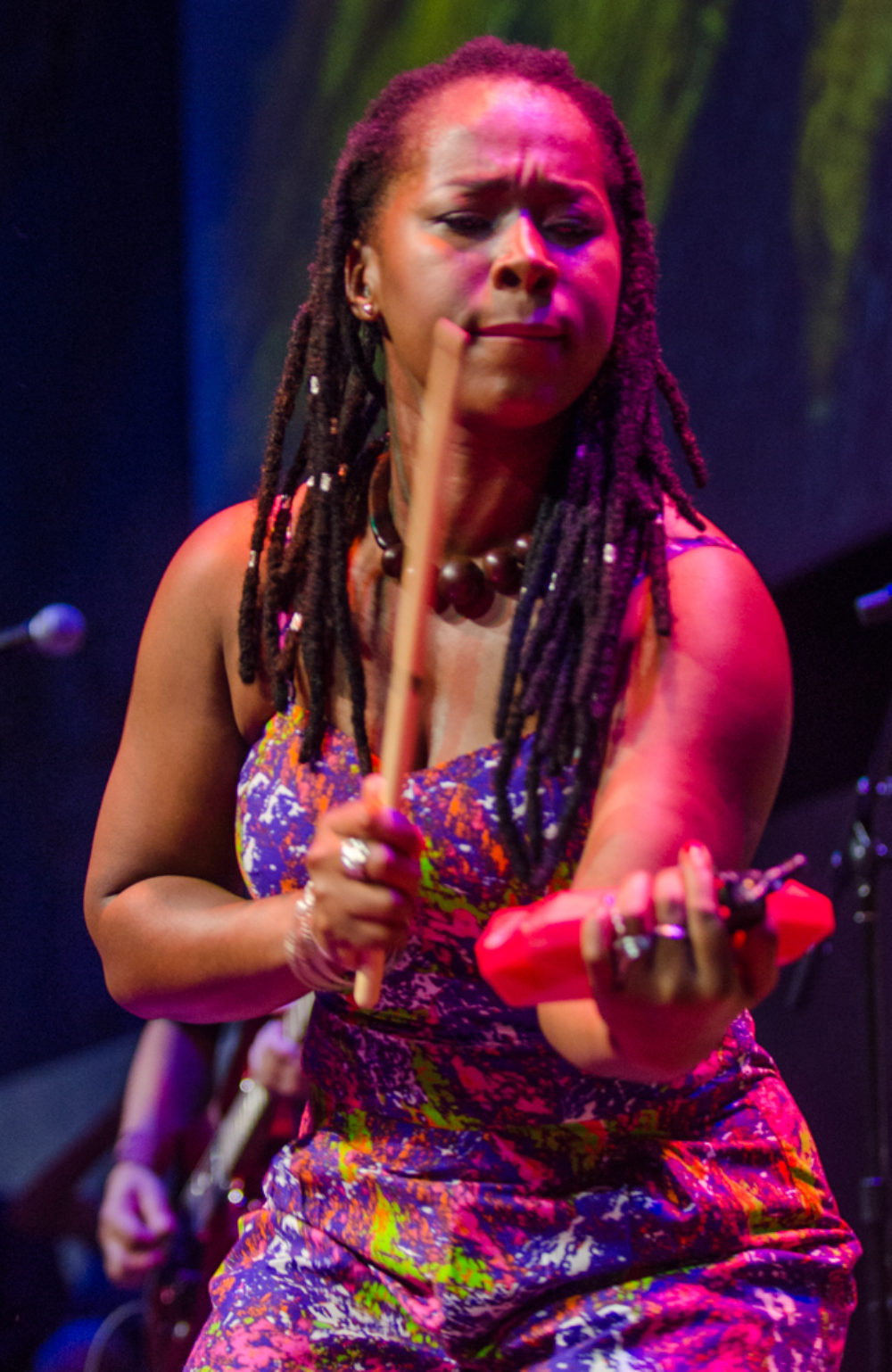
How do you like touring?
It’s hard, but you have got to do it.
I am so impressed by the number of truly great women singers of Cape Verdean music. Jennifer Solidade, Nancy Viera, Fatou Diakite… What’s going on there?
I don’t know. It’s interesting, because before, it was not women. Before, women did not have the right to sing in a bar or a nightclub. But that changed a lot after Cesaria. Young women started to say, “Why not me? Why can’t I do that? Why can’t I sing in a bar? If I can make money for my family by singing, why shouldn’t I do that.” So Cesaria changed a lot.
I have traveled a lot in Africa. I’ve visited about 20 countries. And I have seen that things are very different in Cape Verde. I know that in many countries women don’t have the right to sing. In Chad, in Niger, there is no respect for a woman who sings.
But then you have a country like Mali where there are many women singers.
Yes, Mali. But in Niger and Chad it’s not the same. So it makes me feel good about Cape Verde. It’s the women who are on top.
Thanks so much, Elida. Have a great show.
Thank you.
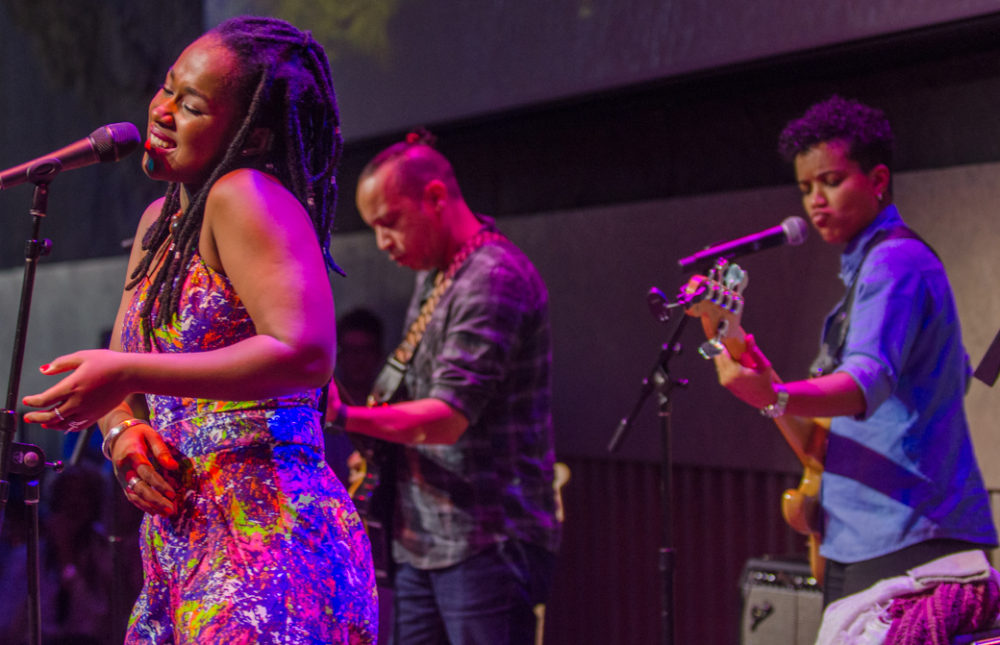
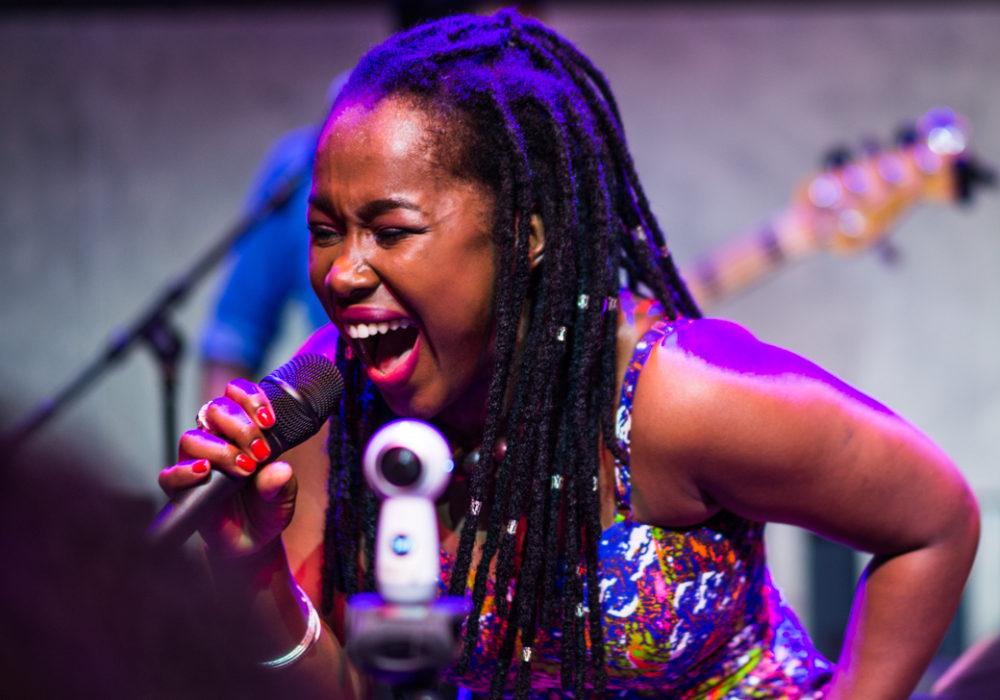
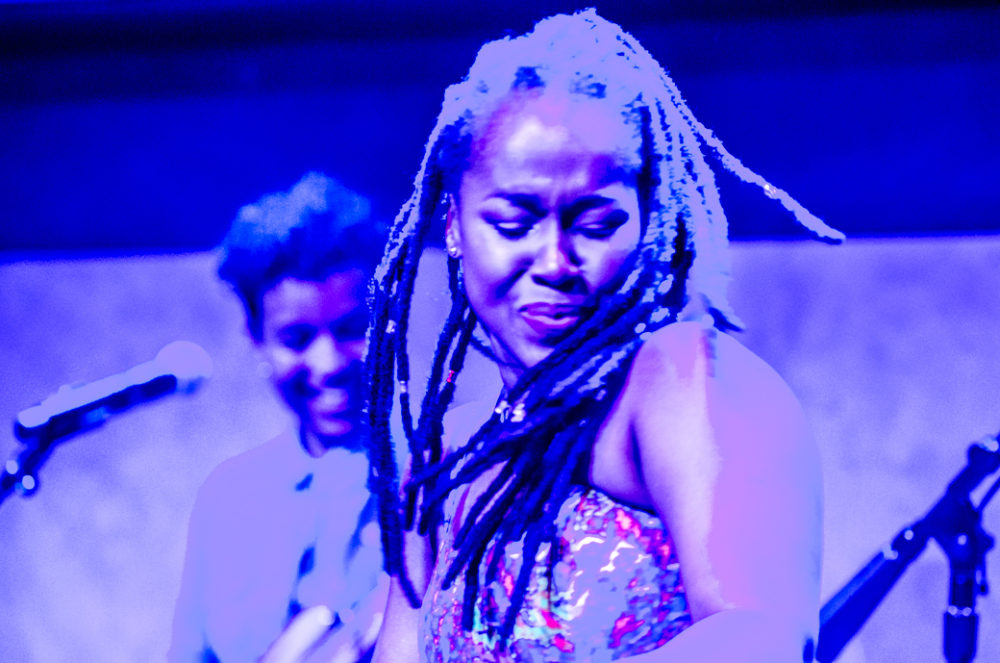
Related Audio Programs
